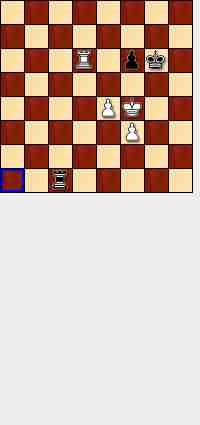My second ever blindfold chess game
I spent much of the time at Henry’s St. Patrick’s Day party playing music.
When I decided to take a break, I went to the chess room and thought I’d just sit down and watch some of the kids play chess. I hadn’t played any chess at one of these parties in a long time, because it’s just too one-sided.
But it turned out that when I sat down, people were leaving the chess board. So I said to Henry (who was also taking a break from music and socializing), “I’ll play you blindfolded!”
Blindfold chess
Blindfold chess is when someone plays a game of chess without having any sight of the board (or equivalent, e.g., touch). The game has to be played using only memory, no recording devices of any kind.
There’s actually a recent book on blindfold chess that I have not yet looked at.
My blindfold game with Henry
At one of Henry’s parties last year, there actually was a blindfold game conducted, between Henry and one of the boys who regularly attends his parties with his family, Ari. Henry played blindfold, while Ari had sight of the board, and I took charge of moving the pieces. That game ended in a draw because although Henry was winning, he forgot where all of his pieces were at a critical point and stalemated young Ari! After that game, I had suggested that someday I would like to play a blindfold game again, having done so once back in around thirteen years ago, when I was in graduate school. In fact, by sheer coincidence, that first ever blindfold game was in the office of my classmate Andrej who was responsible for starting me on listening to Cuban music!! (Curiously, I don’t actually remember how my first blindfold chess game (with Andrej) turned out. I think we adjourned it at some point and did not continue it.)
Anyway, I played blindfold against Henry, who had sight of the board. I was nervous because unlike Ari, Henry is actually a seasoned tournament player (currently rated 1823), having actually drawn me in a rated game several years ago (with both of us being sighted).
My primary concern, not being trained at all in how to play blindfold chess effectively, was to make sure that I did not forget something that could lead to my quickly losing. So I decided to try to simplify. This, of course, meant reducing my own chances of winning.
The game
I don’t remember all the moves in the game, but remember most of them and the most important positions.
I took White and won a Pawn out of the opening but then gave it back. Although I eventually acquired a clear advantage in the middle game, I decided to simplify rather than lose track of my pieces. This was an important position in which I was White, to move:

I ended up winning a Pawn going into a Rook and Pawn endgame, which was clearly supposed to be drawn:

But I acquired some winning chances after a while. I squandered my best chance, as a result of starting to lose track of what pieces were where. It was unexpectedly difficult (without a deliberate attempt on my part at a system) to keep track of exactly where our Rooks and Kings were, since there was so much shuffling around. If I were playing blindfold again, I would come up with a simple system to remember this kind of information.
I had some other winning chances later, because of my active King, but as a result of some simplification, we finally reached a clearly dead drawn position:

The game ended when, after several more moves, I clearly could not make further progress and offered a draw, which Henry accepted.
Conclusion
I was pleased not to lose my second ever blindfold chess game, ha! Well, it was just a casual game late at a party, so neither Henry nor I were playing our best. In a real game, I would be very lucky to escape losing against a sighted Henry, I think.
